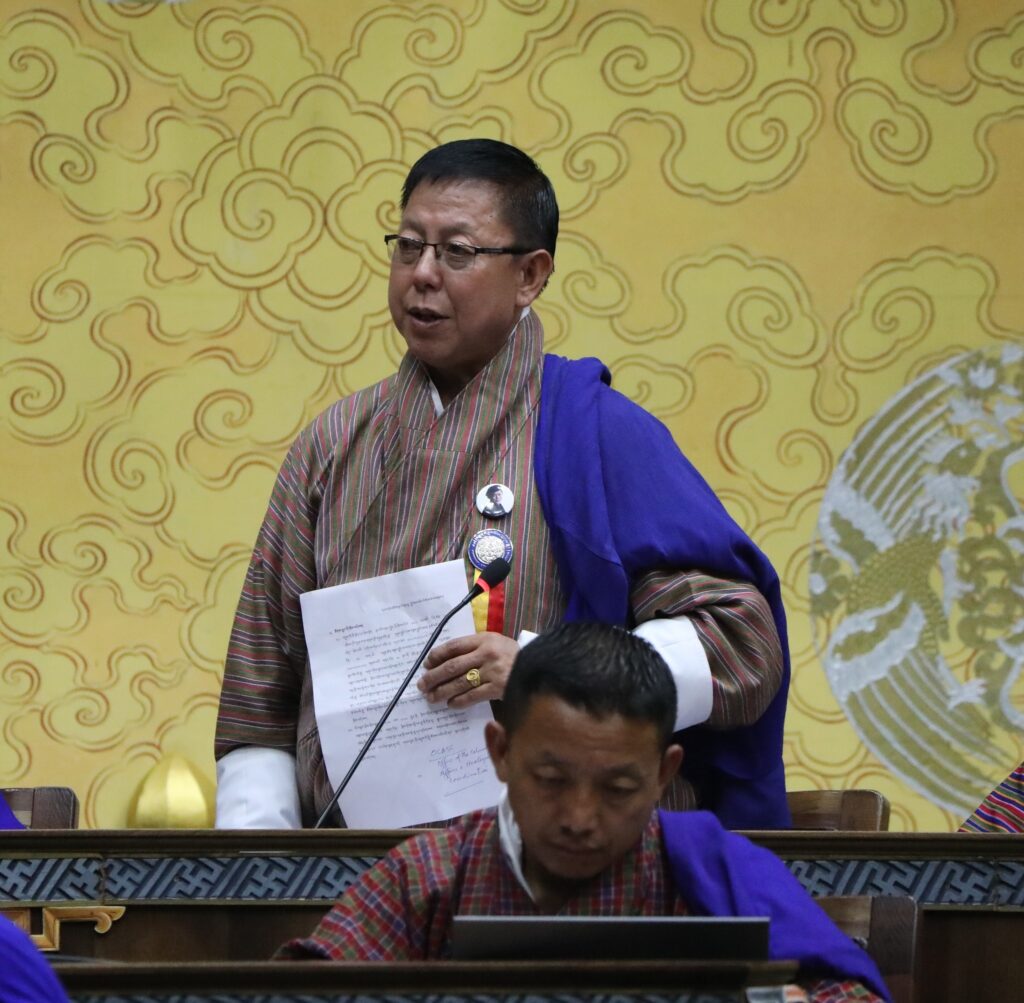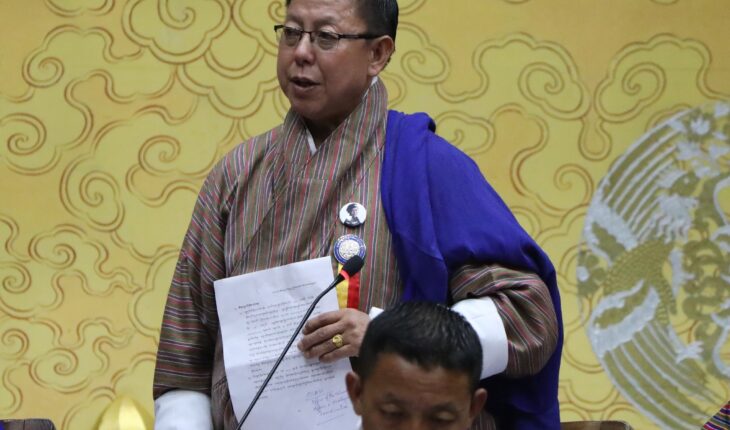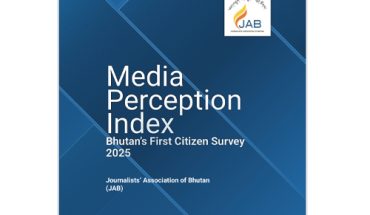
TIL BDR GHALLEY
Thimphu
The Joint sitting of the Parliament has called for legal proceedings in unresolved public fund irregularities amounting to Nu 2.38 billion. The House endorsed a recommendation from the Public Accounts Committee (PAC) to invoke Section 60 of the Audit Act of Bhutan 2018, which mandates prosecution in cases where financial lapses or audit issues remain unresolved beyond one year without justifiable reasons.
The call for action followed PAC’s presentation of the Review Report on the Annual Audit Report 2023–2024 during a joint sitting on Tuesday. The PAC noted that while Nu 3.96 billion in irregularities were recorded as of June 2023, only Nu 1.58 billion had been resolved by March 2024.
Irregularities were reported across central agencies, corporations, hydropower projects, civil society organisations, NGOs, and local governments. Corporations topped the list with unresolved audit issues amounting to Nu 1.08 billion. Hydropower projects followed with Nu 708.66 million in pending cases, with the Punatsangchhu-II Hydroelectric Project Authority (PHPA-II) alone accounting for Nu 702.62 million. Kholongchhu Hydro Energy Limited was associated with Nu 4.55 million in unresolved cases.
Among other sectors, the judiciary reported Nu 2.10 million in irregularities, civil society organisations Nu 0.13 million, and non-governmental organisations Nu 28.34 million.
Within the government sector, the Department of Infrastructure Development recorded the highest irregularities at Nu 344.403 million. At the dzongkhag level, Pemagatshel had the highest amount with Nu 4.74 million, followed by Samtse at Nu 3.89 million and Thimphu Thromde at Nu 2.58 million.
Irregularities classified under “shortfalls, lapses and deficiencies” totaled Nu 1.74 billion. PHPA-II reported the highest under this category at Nu 551.344 million, while the State Mining Corporation Limited (SMCL) followed with Nu 497.177 million.
During the deliberation, National Council Member from Paro, Ugyen Tshering, raised questions regarding accountability in the case of Kholongchhu Hydro Energy Limited. “Is the current management responsible for the irregularities, or is it the previous joint venture leadership?” he asked.
Minister for Energy and Natural Resources, Gem Tshering, responded that the issues were procedural and being addressed. “Construction of hydropower has already begun, and the budget is being used efficiently,” he said. “Any remaining financial discrepancies can be addressed by the Druk Green Power Corporation (DGPC), and we are actively engaging with them to find solutions.”
Several parliamentarians expressed concern over the recurring nature of audit irregularities and the limited enforcement of past resolutions. National Council Member from Trashigang, Sonam Tobgyel, said that implementation of audit recommendations remains weak. “Every time the Committee reports to the House, it recommends holding someone accountable and taking action to fix the irregularities,” he said. “Yet even when Parliament passes resolutions, they are not implemented. So who, in the end, is being held accountable?”
Members expressed the concern, pointing to repeated audit findings with minimal progress on institutional reform or accountability. Several lawmakers noted that some agencies have consistently failed to take corrective actions despite repeated directives from Parliament.
PAC’s report also reviewed unresolved cases from previous audit periods, including findings from 2010 to 2023. Follow-up reports indicated that many recommendations passed in earlier sessions were still pending implementation.
The committee highlighted the need for stronger oversight and timely follow-up by responsible agencies. It urged all implementing bodies including government ministries, state-owned enterprises, and project authorities to prioritise closure of unresolved issues, strengthen internal controls, and respond promptly to audit observations.
The report also raised concerns over recurring irregularities in sectors with high public investment, such as energy, infrastructure, and natural resource management. Lawmakers emphasised that sustained weaknesses in these sectors could undermine transparency, service delivery, and overall fiscal accountability.
With the endorsement of legal action, relevant agencies are now expected to initiate investigations and determine accountability in line with provisions of the Audit Act. Section 60 empowers the RAA to recommend prosecution in cases where irregularities persist despite repeated audit follow-ups and where responsible agencies fail to provide satisfactory responses or action.
The Parliament also examine implementation reports related to past resolutions and pending audit findings. The House aims to ensure that agencies take corrective action and that systemic issues contributing to audit irregularities are addressed.





